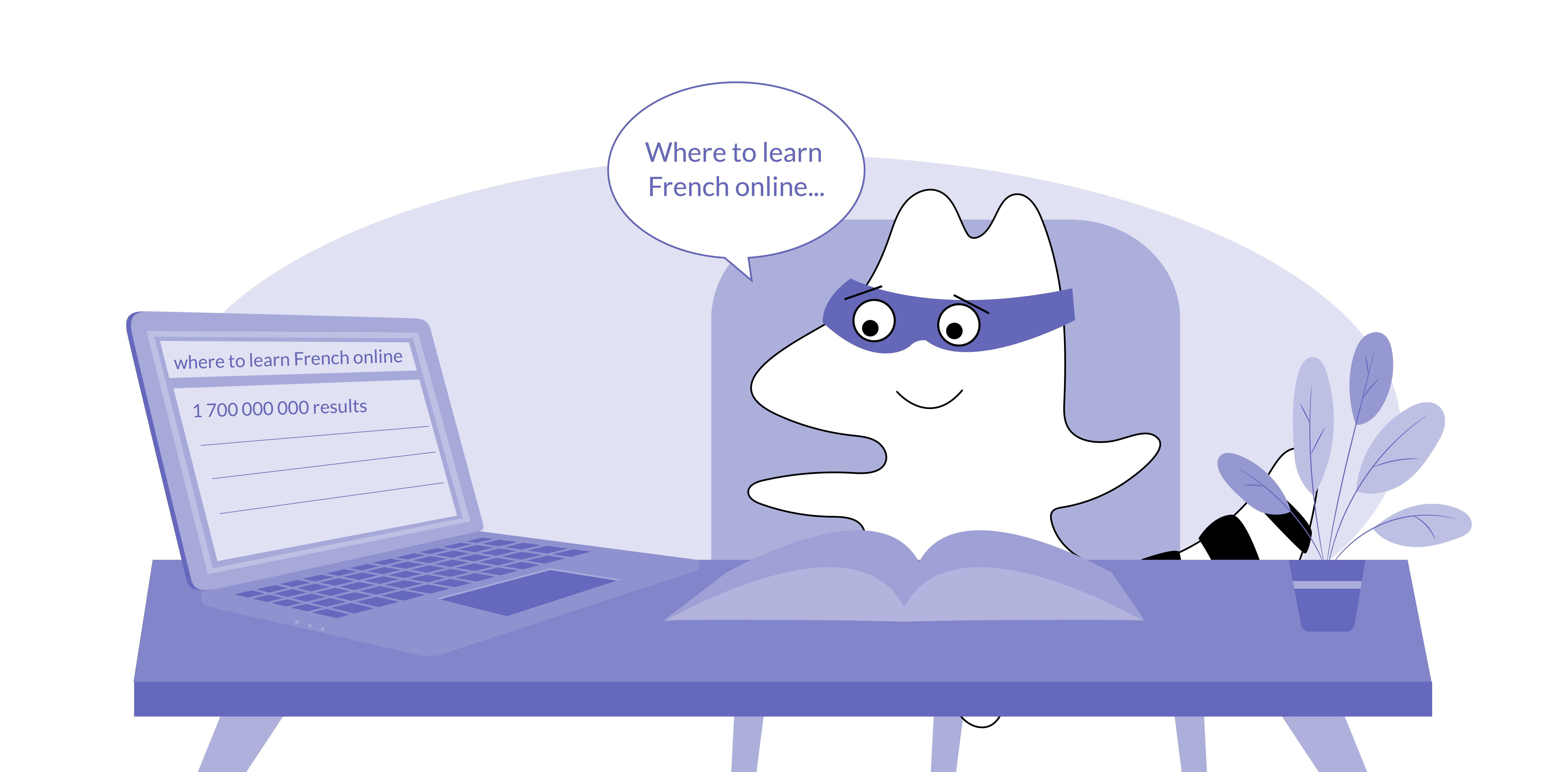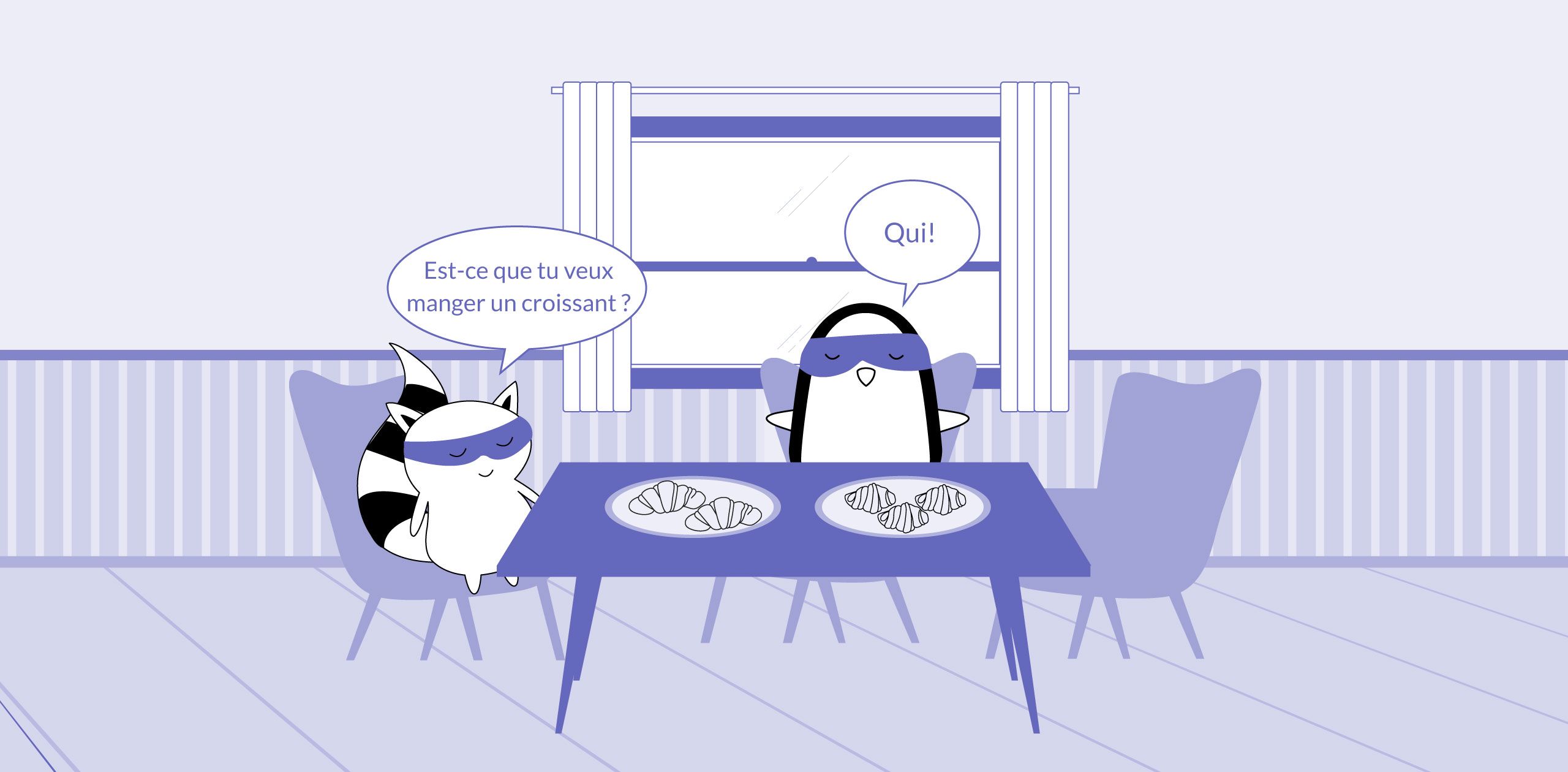
Whether you've been invited to eat a pain au chocolat, asked if you've been to the Louvre, or heard something you completely agree with, you need to know how to say yes in French. However, a simple "oui" won’t always do the trick.
Just like in English, in French, you often need to say "sure”, "yep”, "kinda”, "alright”, and a variety of other words. "Yes" just isn’t enough sometimes. Fortunately, there are numerous ways to agree with someone in French. You just have to know when to use them.
Today, we'll help you learn some French basics. Read on to discover more about different ways to say yes in French - and make sure you always know how to tell someone "maybe," "duh," and "why not?"
Learn French with Langster
1. The Traditional Yes in French - "Oui"
Even if you’re just beginning to learn French, a simple "Oui" (Yes) might already be part of your vocabulary. This is one of the words that even people who don’t know French are familiar with - just like "Bonjour" or "Je t’aime.”
It is also probably the first thing you will learn at any French class - along with "no," "hello," and "goodbye.”
“Oui” can be said basically in any situation when you need to use an affirmative response, regardless of the formality. For instance:
French
English
Tu aimes moi? - Oui.
Do you love me? - Yes.
Veux-tu manger un croissant ? - Oui.
Do you want to eat a croissant? - Yes.
Les voisins sont très bruyants aujourd'hui, n'est-ce pas ? - Oui.
The neighbors are very loud today, aren’t they? - Yes.
In a wedding ceremony in France, you will also hear Oui, je le veux (Yes, I want that) in place of the English phrase, "I do.”
To sum it up: it’s simple, it’s basic, it’s straightforward. But even though it might be a typical way of saying yes in French, that doesn’t mean you should use "oui" all the time. After all, do you always use just one way to say "yes" in your native language?
Pronouncing "Oui" in French
The thing with "oui" is, even though it doesn’t look anything like it’s spelled, it’s still pretty easy to pronounce.
Simply say "we”, but make the e sound a little bit longer than the English one - so it sounds something like wee. Listen to the native pronunciation of this word to make sure you do it correctly - or visit the Langster app to practice.
French
English
Oui
Yes
An Interesting Thing to Remember About Saying Yes in French
When saying yes, French people don’t repeat the answer, as English speakers do. So, if someone asks you if you speak French, or if you have ever been to France, or any other thing that you can answer with "yes," you won’t say "Yes, I do" - but simply use "oui.”
Very practical, if you ask us.
2. When You Agree with Someone - "Exactement”
Just like in English, in French, you may also want to say something like "That’s right" or "You’re correct." In such a case, a word you can use is "exactement" (exactly). For example, if a child or younger relative asks you whether 2+2 equals 4 four, your answer will surely be exactement.
French
English
Exactement
Exactly
An interesting thing that you can note here is the -ment suffix. It’s used to form adverbs from adjectives - for instance, "douce" (nice, gentle) - "doucement" (nicely, gently). However, in many cases, just like with "exactement’, it simply indicates that you’re using an adverb.
What Other Words Can You Use to Say "That’s Right?’
If you want to broaden your French vocabulary, you can also learn how to say "That’s right" in other ways. For example,
French
English
Tout à fait
That’s right/Precisely
En effet
Indeed
C’est ça
That’s right
C’est exact
That’s right (pretty formal)
Pourquoi pas ?
Why not?
3. How to Say "Sure" in French - "Bien Sûr"
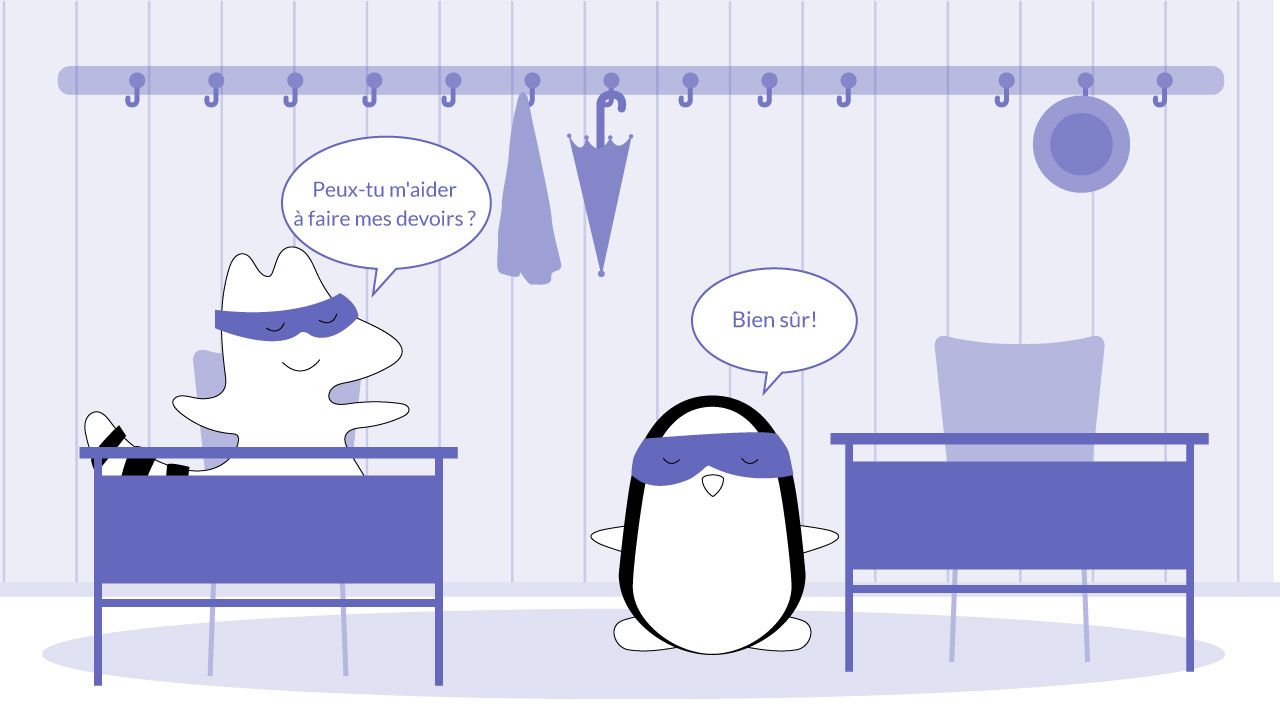
One of the most casual ways to say yes in English is "sure." If you want to use it in French, you’d say "Bien sûr" - "Yes, of course," or, literally "Very sure." While it’s not a direct translation of what you might say in English, it’s widely used in both formal and informal situations.
However, if you’re looking for another term, you can also use the word "Carrément" (Sure thing). But remember to not use it in formal situations, as it will sound too casual.
French
English
Bien sûr
Yes, of course
Carrément
Sure thing
Pronunciation
Saying "Bien sûr" out loud may be a little more complicated than saying "Oui" - but it’s not that hard. Remember that in “bien”, the final n is silent, so you will say [bjɛ̃]. And in "sûr”, û is pronounced like classic French u, and reminds of something like English ou in "soup’.
4. The Casual Way to Say Yes - “D’accord”
Sometimes, you may want to say yes to your friends or family in a casual setting. In such a case, show how well you know French, and say "d’accord”, which means "alright" or "okay."
French
English
D’accord
Alright/okay
“Do you want to go to the movies together?" - D’accord. "Today we have salmon for dinner" - D’accord.
You can even sometimes use it in formal situations (but not with your strict boss, maybe). "Please wait in line, we’ll come back to you" - D’accord. It’s a great equivalent of the plain, sometimes boring "oui.”
You can also use this word as a part of the expression "Être d’accord" (to agree). For example, Je suis d’accord que tu es belle (I agree that you look beautiful). Or say "Yes, that’s good" using Oui, c’est d’accord.
Other Ways to Say Yes Casually
Of course, there are other ways to say yes in French in a casual way. For instance, you can learn some of the following expressions:
French
English
Ça marche
Okay / Got it / That works for me (This is widely used in many informal situations).
Voilà !
That’s it!
Absolument
Absolutely. (This one can be used both as an adverb and as an agreement. For example, Je suis absolument d'accord (I absolutely agree) or Absolument, je resterai pour le dîner (Absolutely, I’ll stay for dinner.)
Ouah
Wow. (While "ouah" isn’t really an alternative to "of course”, it is frequently used in modern French - so we really recommend learning it, or at least getting familiar with it.)
5. The Informal "Yes" - "Ouais”, "Ouaip”, "Ben Oui”
When talking to close friends or siblings, it’s also natural to use more informal language than in other situations. For example, during a movie night or hanging out in a bar with friends, you can use the following expressions to say yes in French:
French
English
Ouais
Yeah
Ouaip
Yep
Ouep
Yep
Bah oui / ben oui
Yeah
A pro tip: in the latter expression, "bah" or "ben" can be used both with "oui" and "non" (no), and they will determine the meaning of the sentence. If the words are long, they will indicate the speaker's hesitation. For example, beeeen oui will mean something like "um yeah’.
On the other hand, if the word is pronounced shortly, it will manifest the obviousness of the answer. For example, with bah, non, you can say something like "nah, obviously’.
Those are widely used among teenagers and younger French speakers. After all, they love to sound cool. However, you may not hear these words used in many casual situations with adults.
Beware of "Yep" in French
Remember that "yep" and "yeah" belong to a lower register, and many French teachers don't recommend using it in formal situations, such as at school or at work. For example, if you want to make a good first impression when talking to someone, stick to more formal ways to say yes - "oui" or "d’accord.”
Also, when using any of those phrases - for example, ben oui or "um, yeah" - remember about the right tone. After all, phrases like ben oui/bah oui can show disrespect, a certain sloppiness, and even irritation. However, if you want to show that you don’t like something, you can also use another expression - "mais oui” (but yes).
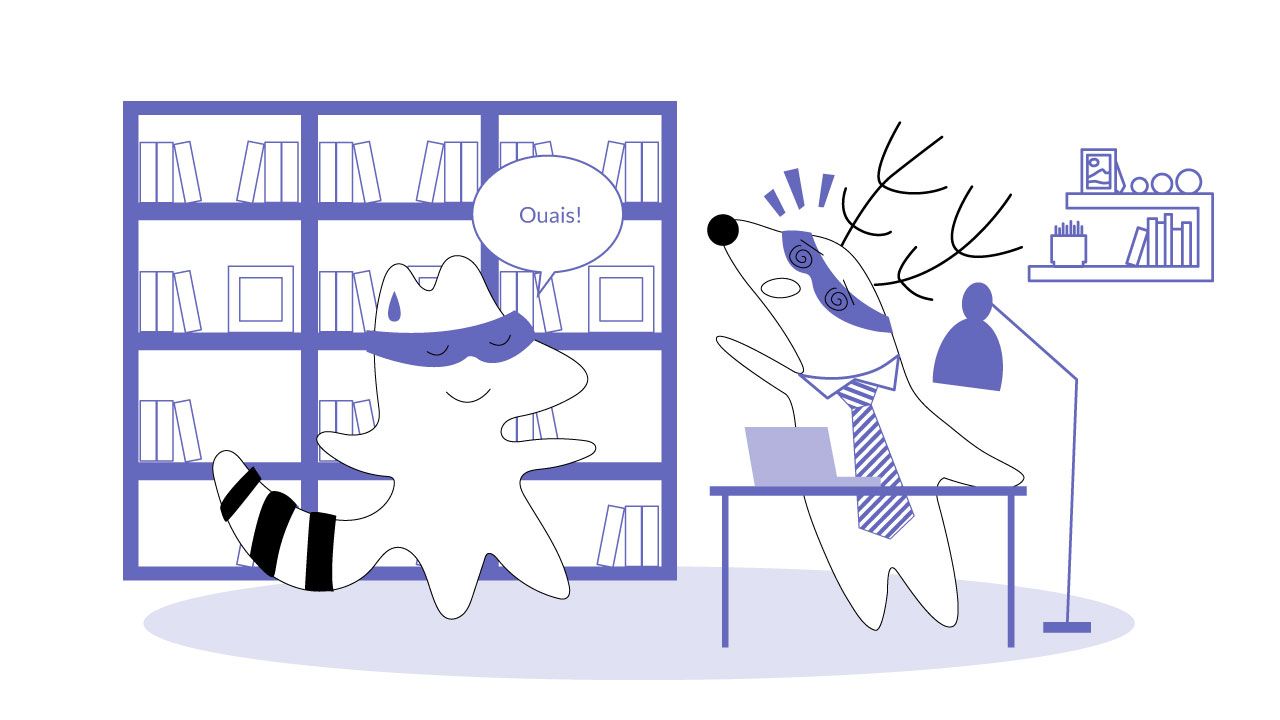
6. When You’re Irritated - "Mais Oui”
Of course, you don’t always have to agree with the person you’re talking to, and the conversation may not be enjoyable. So if you need a way to say yes in French, but still communicate that you’re irritated with the topic or with the person, use "mais oui" - "yeah, of course.’
French
English
Mais oui
Yeah, of course
“Mais oui" literally means "but yes," and it is always used sarcastically.
French
English
Tu as pris du poids. - Mais oui, et j'ai fait une nouvelle coiffure, merci d'avoir remarqué.
You’ve gained some weight. - But yes, and I also have a new haircut, thanks for noticing.
When saying yes with this phrase, remember about the tone - it’s super important here. And note that "mais oui”, along with the expressions we covered in the previous point, can easily be considered rude or passive aggressive by French people. So always use them carefully and only when the context allows.
7. The Contradictory Yes - "Si"
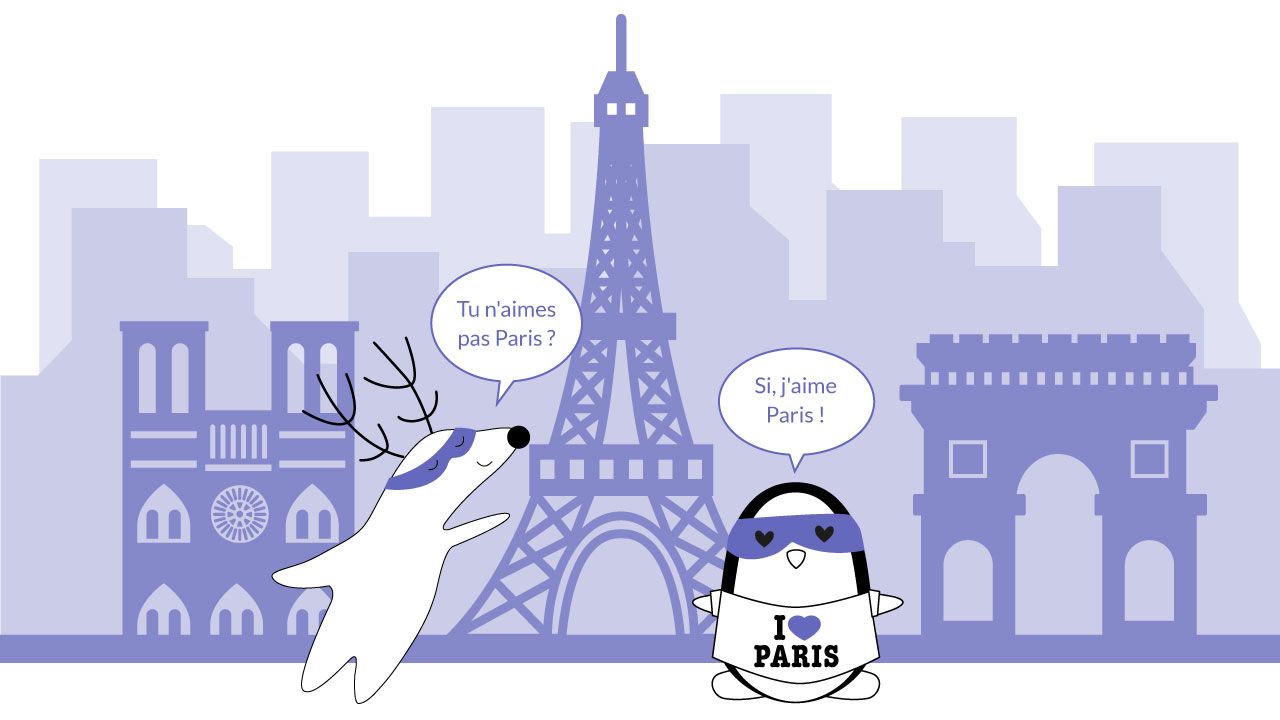
Sometimes, people ask you questions to which you have to respond "yes," at the same time contradicting the statement. Something like: "Didn’t you sleep last night?" - "Yes, I did. I’m just tired." In such a case, French offers you a possibility to say "si.” This word can be used as a French equivalent for "but yes" or "actually, yes.”
Basically, with "si,” you disagree with a negative statement. For example:
French
English
Tu n’ames pas Paris ? - Si, j’adore Paris !
You don’t like French? - Yes, I adore it!
Or use "mais si" - "but yes" - to emphasise how wrong the person is.
“Si" is the only way to respond with "yes" to a negative statement, disagreeing with it, so it is used both in formal and informal situations.
It might be a little more complicated than other French words for "yes," but trust us - you’ll get used to "si." With active learning you can start using this French word naturally in a matter of weeks.
What's the Difference Between "Si" and "Oui" in French?
While you can use "oui" to say yes in French in many different situations, "si" can be used only in a specific context - when contradicting a negative statement. For example, let’s look at the following example:
French
English
Tu ne m'aimes pas ?
You don’t love me?
If you use "si" as an answer, you will disagree with the person you’re talking to, saying that you do love them. However, if you use "oui" as a way to say yes in this context, it will mean that indeed, you don’t like them.
8. When It’s a Pleasure for You - "Avec Plaisir”
Imagine a situation: your French grandmother asked you to help her eat the croissants left over from breakfast. What will you say? "Avec plaisir, grand-mère !" (With pleasure, grandma!)
This is also one of the ways of agreeing with someone in French - but this time, the action is especially delightful. For instance, when you’re looking for an apartment, and a potential landlord asks if you want to see a flat that looks fantastic in the pictures, you can answer: Avec plaisir.
French
English
Avec plaisir
With pleasure
9. "Perfect" in French - "Parfait"
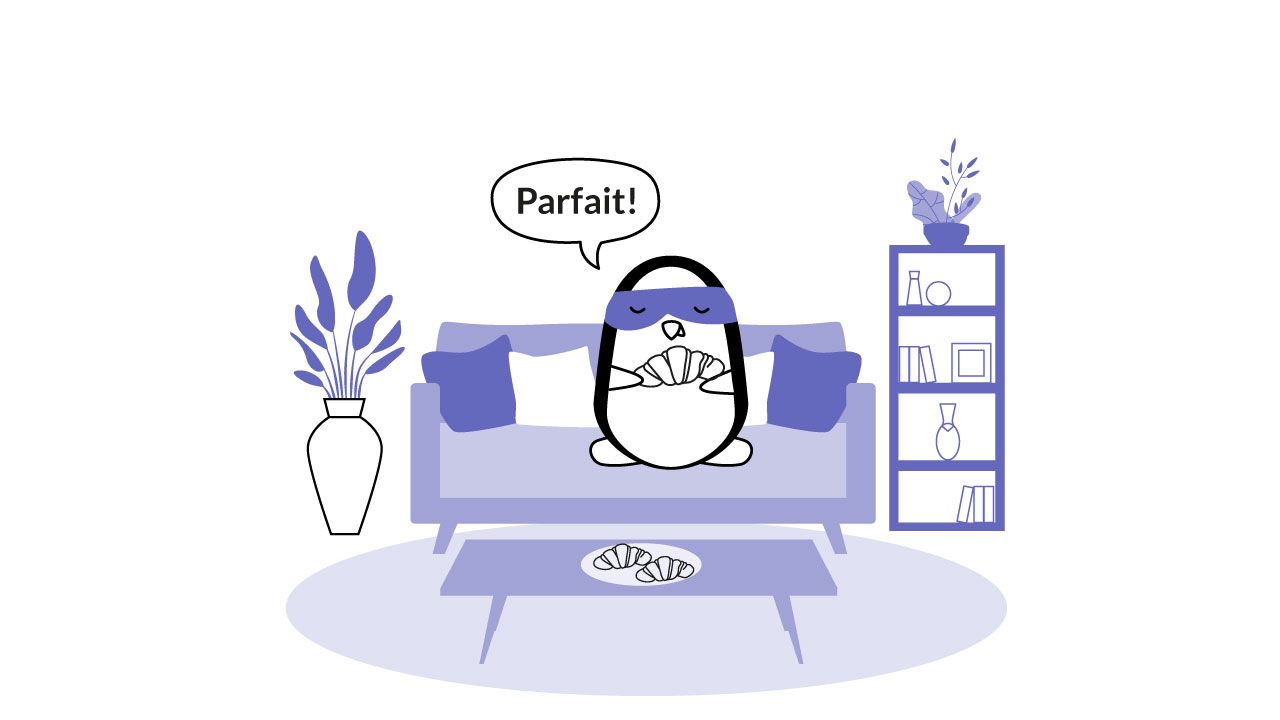
You can also say that something is perfect instead of simply saying yes in French. In such a case, you can say "perfect" - the French translation for that would be "parfait." For instance, if your partner tells you you’re ordering sushi for dinner, you can answer with parfait. Of course, that is if you love sushi.
French
English
Parfait
Perfect
Or use an equivalent of "parfait" and say Très bien (excellent or very good). When answering someone’s question, you can even add "oui" and create a whole expression using this phrase.
French
English
Bounjour, ça va ? - Oui, très bien.
Hello, everything good? - Yes, very good.
Tu aimes le dîner ? - Oui, c’est parfait.
Do you like the diner? - Yes, it’s perfect.
You can also use the word we already mentioned above: "ouah" - "wow." However, it’s not an alternative when it comes to the literal meaning of "perfect." Instead, use it to express your emotions - for instance, when your loved one tells you you’re going to watch your favorite movie together.
To Sum It Up
Learning how to say yes is an important skill, especially if you’re going to France - the country of tasty food, beautiful people, and breathtaking sights. So if someone decides to ask you out on a date, you might want to say "with pleasure" - and now you know how to do just that.
Today, you have learned about all the important ways of saying yes in French. From "oui" to "si”, you now are aware when and how to use them and what to look out for. We hope that thanks to this lesson, you will be able to amaze your friends with a casual "Ça marche" and avoid the informal "ouais" when talking to your strict boss.
Have we missed something during this lesson? Maybe - but the topic of agreeing in French is too big to be covered in just one article. Continue learning French to discover more words and traditions related to French culture. And if you have lacked some practice and listening today, make sure to download the Langster app and put your knowledge to use.








